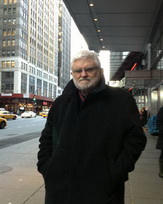It
was a simple question put to the people of
Scotland
to which there was a simple
answer, yes or no. The question asked them to choose between continuing
membership of the
United Kingdom
or independence as a separate
sovereign state. The result of that referendum, announced on Friday morning of
last week, went in favour of staying together as the
United Kingdom
. A democratic process worked and a
decision was reached.
The
arguments used in the weeks prior to the vote tell us a great deal about
relationships and local expectations, about the need for identity and an
appreciation of the value of a decision-making process that is close at hand and
personal.
Local
need within a larger framework, solutions found that acknowledge sensitivities,
customs and language, is a pattern that is similar to what we term in the Church
as collegiality. When there is
a remoteness between those defining structures and those who are expected to
live within such structures, then there is the possibility of argument,
disagreement and discord.
It
is for this reason that the issue of effective collegiality must be urgently
addressed. In our attempt to define a recognisable whole we have often
over-ridden local custom and community. The value of enculturation has been
ignored to our cost. Such a rigidly defined structure holds good for a while but
eventually the cracks begin to show under the strain. Unless at that stage there
is careful management of the process of addressing questions, those cracks can
become serious fault lines with self-evident consequences.
A
serious political discussion now has to take place in the
UK
on the pattern of our future
government.
Such
a discussion also needs to be encouraged within the Church. We are not a
national group, a political entity so the circumstances are in many ways
different. But in one essential aspect we share a common ground, the need to
involve people. Because the result of the Referendum was going to be so
significant, the turn-out of voters was huge, well over 80% of registered
voters.
In
the same way, at parish and diocesan level, people will get involved if it is
clear that their views count, that their opinion matters. It is imperative that
a structure exists to enable that exchange to take place. Every parish should
have a parish council even if the parish priest would prefer to manage without
one. Every diocese should have a pastoral council where meaningful discussion
can take place.
At
a time when there is an ever-growing shortage of priests, encouragement of the
laity to accept a positive role in evangelisation must surely have a high
priority.
The
coming months and years following the decision in
Scotland
will be of great consequence for
the political future of the countries that form the
United Kingdom
. So will the future of our Church
be determined by the courage of diocesan bishops in seeking local solutions to
issues rather than always looking for final validation of any and every action
from
Rome
.
END
---------------

